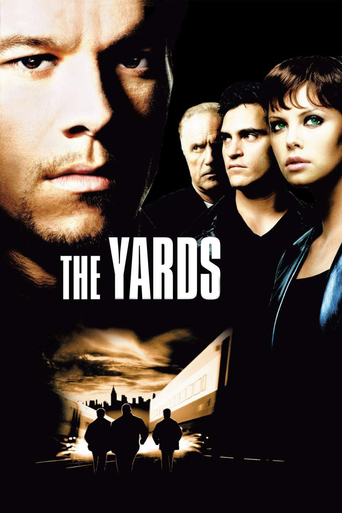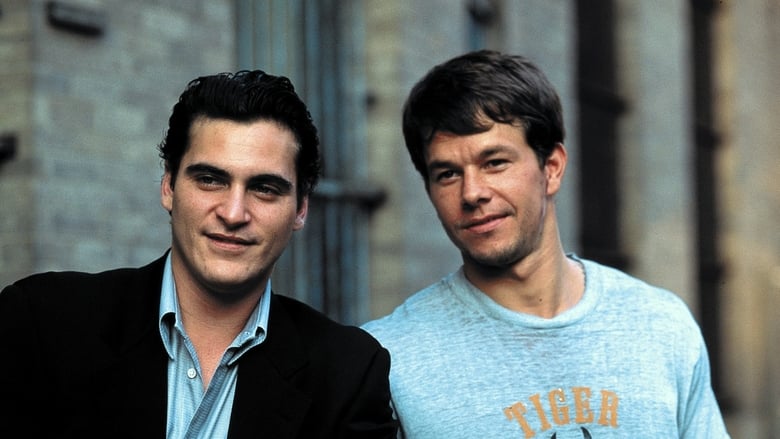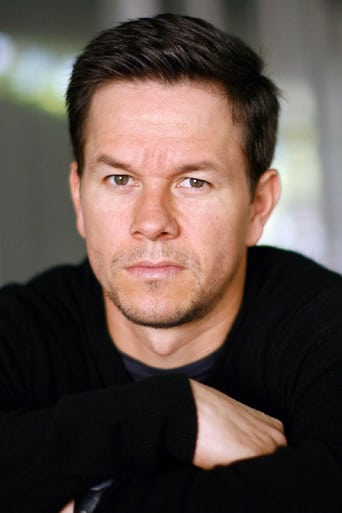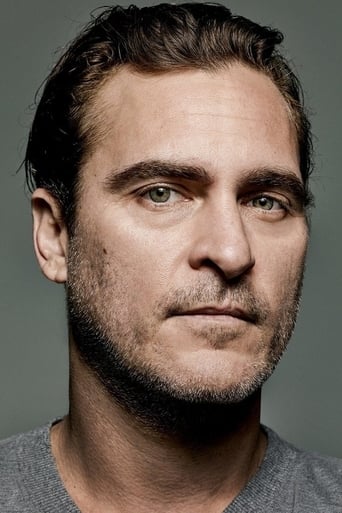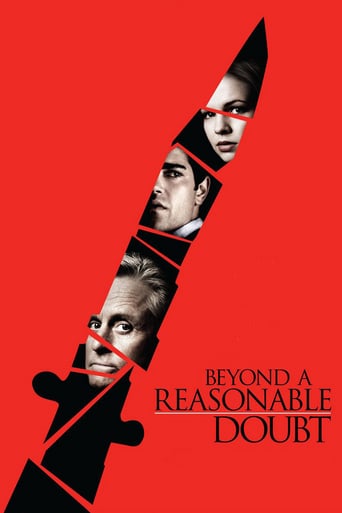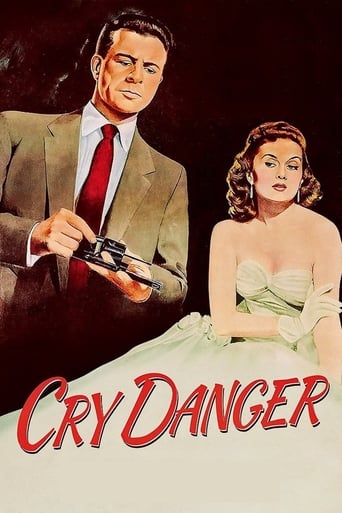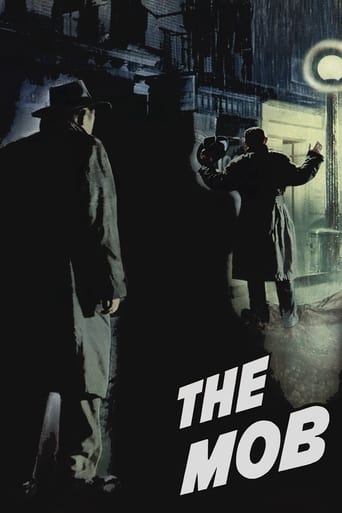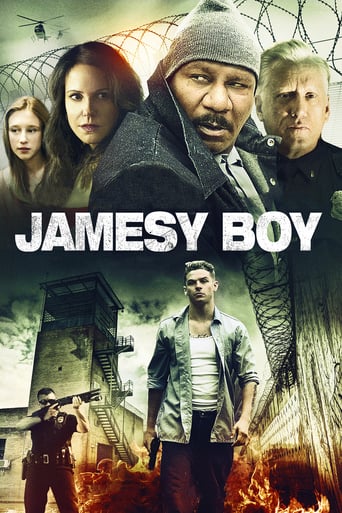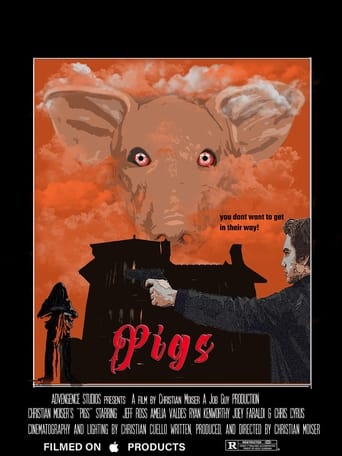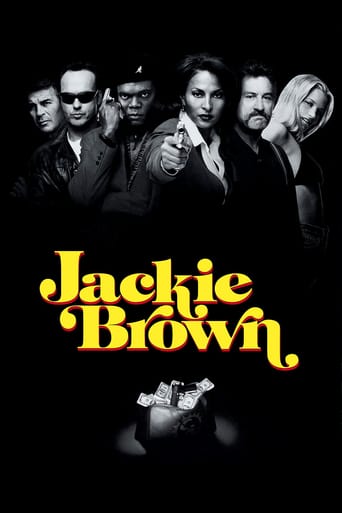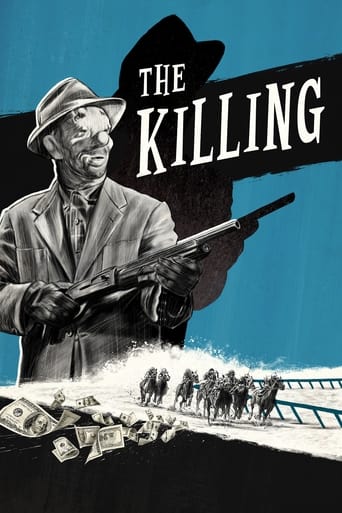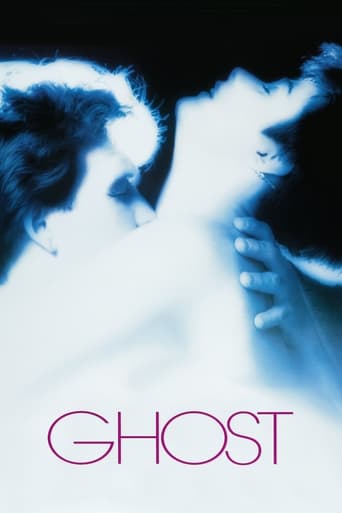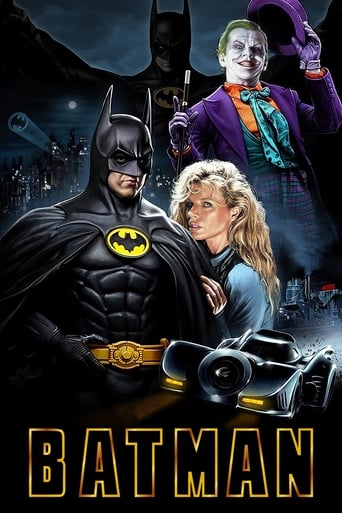The Yards (2000)
In the rail yards of Queens, contractors repair and rebuild the city's subway cars. These contracts are lucrative, so graft and corruption are rife. When Leo Handler gets out of prison, he finds his aunt married to Frank Olchin, one of the big contractors; he's battling with a minority-owned firm for contracts.
Watch Trailer
Cast


Similar titles
Reviews
I would have liked to have issued a "7" to The Yards, because of its credible, accessible, taut story and excellent acting and cast, but the ending was lack-luster. The movie deserved a better ending than the unconvincing testimony of Wahlberg's character (Leo Handler) at the final scene's hearing. The over-all dreariness of the colors in the movie made it appear morose, as well. Contrast the endings and overall tones of The Yards with a similar story, Marked Man: In The Yards, a savvy, tough, recently-released man is dumb enough to get suckered in to a con game, even though he should know better and "wants to be a productive member of society"? In Marked Man, an escaped individual does everything in his power to stay alive and turn the tables on those responsible for the (new) crime he is being accused of. Both hypotheses are believable, but its a bit hard to swallow: the fact that Handler gets in over his head without ever showing any suspicion of the people he's associating with or the "work" to be done.It seems that money is the only thing that really matters to him, despite what he says about personal industry. This makes the character hard to fully support. The colors that the director of The Yards chose to issue the film in are dark and dismal: There are no scenes of beauty. In Marked Man, there are many outdoor scenes, full of brightness and life. In the end of that movie, Roddy Piper's character skillfully and successfully persists in getting the goods on those responsible, clearing his name in the process. I would have liked to have seen a better ending for The Yards: Perhaps James Caan's character spilling the beans on the whole caper, just to take down his adversary, even if it means his incarceration, as well. Maybe he demands that some lenience be afforded to Handler (his nephew) as part of the deal. In any case, Handler would be going back to prison for assault and battery on a police officer, possibly conspiracy, and he only would have himself to blame. A more dynamic character for Chalize Theron would have given the story more texture and substance: Perhaps, with the help of Joaquin Phoenix's character and Handler, she steals important documents or recordings that implicate the top dogs in the flim-flam. Wahlberg's acting was a bit wooden and I'm not sure Phoenix has the chops to act alongside the great James Caan (and Ellen Burstyn). This is a good movie that would have done better with more dynamic female characters, better lighting and a novel ending.
Spoiler:This movie has some great acting, but an ending that ruins it for me. At the end, all the train yard principals cut a deal that only leaves one character hanging. But then another leading character violates the agreement, which makes no sense as it will devastate everyone he loves, plus gets him whacked before they can even go to trial, if the movie went on. The movie should have ended where three family members are holding hands at a funeral with a bitter-sweet ending. Instead the movie asks us to accept that a powerless, jobless ex-con is going to bring down the power brokers of New York city based on his word, and no proof at a council meeting. Rubbish.
I had to move pretty quickly when this movie first came out. In spite of strong reviews, I guessed it wouldn't be around for long (in recent times, think of the wonderful Tabu, which in spite of ecstatic reviews, totally bombed in the UK). It was good that I caught it and I did not regret it. This is more than a story of corruption and redemption, it is also an amazing mood piece. The fact that so many quality stars were involved in this film tells you how impressed they were by the script and by the vision of director James Gray. I think the slow ratcheting of tension was beautifully done, not at all boring. In some ways it reminded me of "On the Waterfront", which I also love and was as much about character as plot. Yes, it is THAT good.
This is a review of "Little Odessa", "The Yards" and "We Own the Night", three crime dramas by director James Gray.Released in 1994, "Little Odessa" stars Tim Roth as Joshua Shapira, a volatile criminal who has been exiled by his family. A "prodigal son returns" narrative, the film watches as Roth returns to his family home. Though his relatives still distrust him, Joshua is idolised by his younger brother, little Reuben Shapira (Edward Furlong). The film ends, as most "prodigal son" tales do, with Reuben dying, paying for his brother's sins."Little Odessa" was Gray's debut. It's a very good drama, well acted by the always electric Tim Roth, but the film's ethnic details are unconvincing and Gray falters in his final act with an obvious, overblown sequence in which little Reuben is accidentally gunned down.Gray followed "Odessa" up with "The Yards" (2000), a crime drama set in the commuter rail yards of New York City. The film's structure is similar to "Odessa", and sees Mark Wahlberg playing an ex-convict who returns home after a short stint in prison. Wahlberg attempts to stay clean, to keep his nose out of crime, but is drawn back into the criminal underworld by a friend played by Joaquin Phoenix. The film retains the "brotherhood dynamics" of "Odessa", Wahlberg playing the "good son" who eventually turns on his suffocating sibling. Once again the film ends with a ridiculously over-the-top death sequence.While "The Yards" has a certain, smothering pretentiousness about it, convinced about its own importance (it's lit like Rembrandt, street fights are filmed like Visconti's "Rocco and His Brothers" and it's reaching for the tone of Coppola's "The Godfather"), Gray nevertheless cooks up some wonderful strokes, like a beautifully sensitive welcome-home party, a wordless assassination attempt and a fine, aching performance by Wahlberg. It's a great mixed bag.Gray then directed "We Own The Night", arguably his best crime flick. The "good brother/bad brother" motif returns, this time with Mark Wahlberg and Joaquin Phoenix playing a pair of brothers on either side of the law. Phoenix's a perpetually high playboy who owns a nightclub frequented by drug-runners and mafia types, and Wahlberg's a straight-arrow cop trying to keep the streets clean. When the mafia unleashes an assassination campaign on local cops, Phoenix switches allegiances, goes undercover and attempts to take down the mob. There are touches of "Donnie Brasco", "Rush", "Point Break", "Serpico", "State of Grace", "Infernal Affairs" and every other "undercover cop" movie you can think of, but the film is beautifully lit, is atypically straight-faced and features a superb, rain-soaked car chase.Some have suggested that Gray's trilogy should be celebrated for working in a "classical", almost conventionally Greek mould. That his conventionality suggests that all his characters are at the mercy of already in place contours, their fates forgone. Mostly, though, Gray's trilogy highlights the ways in which contemporary artists have struggled to conceive of a response to postmodernism. The crime movies of, say, Tarantino and Scorsese, are unashamedly postmodern, toying with and regurgitating clichés from 1930s Warner machine gun operas and MGM crime flicks. They aren't about "crime", so much as they're pastiche jobs, jazzed up films about crime films. As a response to this aesthetic, artists who deem themselves "serious", who rightfully ask "what exactly comes next?", tend to look backwards at what came before, as though post-war modernism, by virtue of being modernism, is intrinsically "the solution". This leads to classically shot and written but wholly regressive fare like Gray's trilogy, which essentially unscrambles the world's Scorseses and Tarantinos and puts you right back in the 1940s, minus the irony and flippancy.But you can't go backwards in this way; your audience will always be ten steps ahead and there will always be a huge chasm between your solemnity and the tired insights your film delivers. This is why true progressive works in the genre, for example fare like "The Wire", which actively attempts a cognitive mapping of both global capitalism and crime, are neither modernist or postmodern, whilst possessing the vital traits of both. Philosophers have alternatively coined this new movement "neoprimitivism", "pseudomodernism", "participatism", "post-post modernism", but the one that seems to be sticking is "new modernism".Whatever you call it, this hypothetical movement rejects postmodern nihilism (nothing matters, there is no "truth", it's just a film), actively tries to convey the complexities of our world, and covertly believes that it is possible and necessary for individuals to make value judgements, take stands, approach objectivity, and back facts up. It is modernist in its desires to "understand", "teach", "decipher" and "make better" the world, and in its emphasis on culture, society, technology and politics. The movement doesn't reject postmodernism, but co-opts its tropes and bends them to suit its aim, questioning agency, subjectivity and attempting to piece together the fragments and multiple perspectives that typify complex systems. In short, truly relevant crime films simultaneously simulate our contemporary environment of junk, noise, commerce and static, before proceeding to decode, organise and target roots. As William Gibson said way back in the 1980s, future great artist will function like search engines, mapping and making sense of the detritus. Gray goes backwards to when there was less noise.7.9/10 - Worth one viewing.

